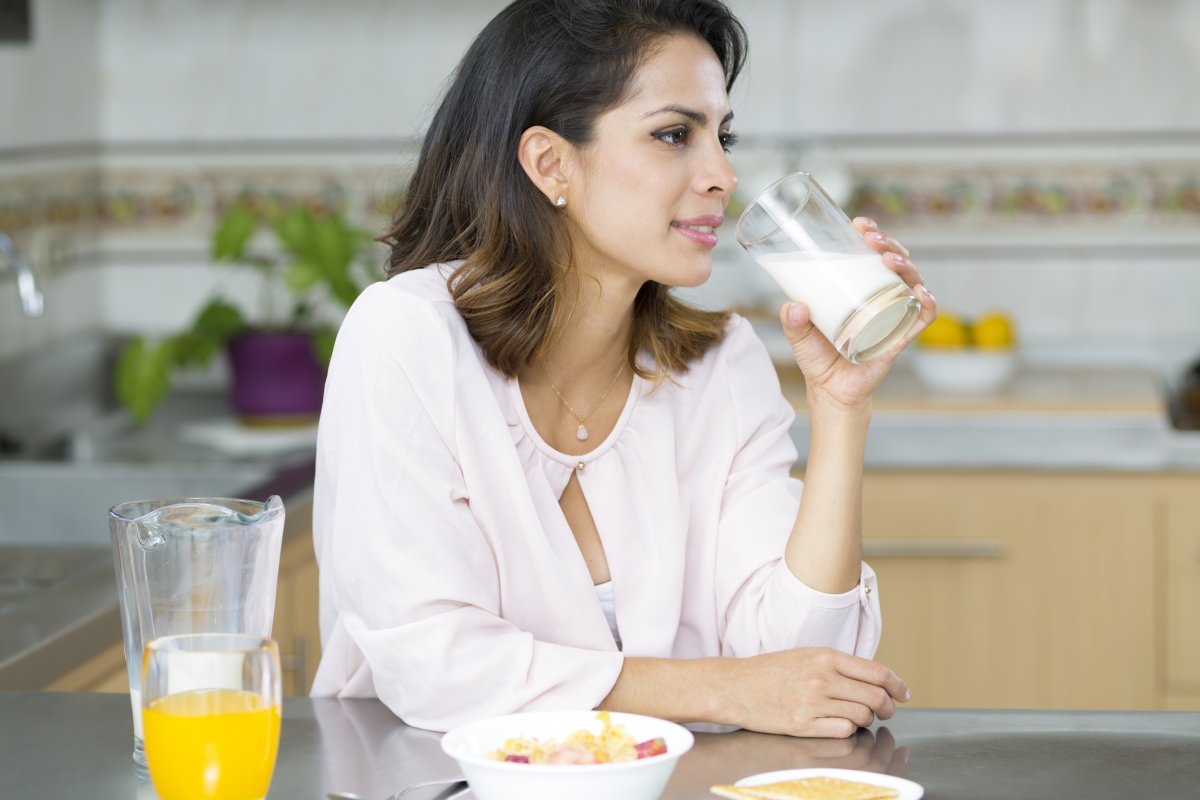Drinking milk could reduce your risk of Type 2 diabetes if you lack the enzymes to break it down.
Approximately 1 in 10 Americans has diabetes, 90 to 95 percent of whom have Type 2, according to the U.S. Centers for Disease Control and Prevention. Type 2 diabetes occurs when your body's cells become resistant to the hormone insulin, which is important in controlling blood sugar levels.
Type 2 diabetes is often preventable, with risk factors including being overweight, not getting enough exercise and genetics. Diet can also play an important role.
In the past, the relationship between milk intake and Type 2 diabetes has been controversial. While some studies have shown a clear protective association, others have shown no correlation or even an increased risk of diabetes among milk drinkers.

In a new study, published in the journal Nature Metabolism, researchers from across the U.S. have put this controversy to rest, highlighting a simple genetic variant that underpins these contrasting effects.
In a study of over 12,000 Hispanic/Latino U.S. adults, the team, led by Qibin Qi of the Albert Einstein College of Medicine and Harvard Medical School, found that higher dietary milk intake was associated with a 30 percent decrease in diabetes risk, but only in individuals with a particular variant of one specific gene.
The gene in question encodes the enzyme lactase, which is essential for the breakdown of milk sugars. Some people produce lactase throughout their lives. But others stop producing it after infancy, once they are weaned off their mother's milk. These individuals therefore struggle to digest milk sugars, which in many cases can result in lactose intolerance. But not always.
"Lactase non-persistence does not necessarily preclude the ability to consume some amount of lactose," Lonneke Janssen Duijghuijsen, a researcher in nutrition and health at the Netherlands' Wageningen University, said in a statement.
"Research has shown that many lactase nonpersistent individuals can still consume up to 12 grams of lactose per day, comparable to the amount in a large glass of milk, without suffering from intolerance symptoms," Duijghuijsen said.
In these individuals, drinking milk was associated with a significant increase in the abundance of "good" gut bacteria, which in turn was correlated with a reduced risk of Type 2 diabetes. Milk intake was also associated with specific changes in blood metabolite levels in those who did not produce lactase into adulthood.
The team confirmed these counterintuitive results by looking at a cohort of over 160,000 individuals from the UK Biobank—a large-scale biomedical database investigating the respective contributions of genetics and environment to the development of various diseases.
This finding is further supported by previous research showing a strong negative association between milk intake and diabetes in East Asian individuals—a population with particularly low levels of lactase persistence in adulthood.
"Our findings can help explain the previously observed population differences in the relationship between milk intake and risk of type 2 diabetes and also contribute to our understanding of the effect of milk intake on human metabolic health through the interplay of the host genetics, gut microbiota and circulating metabolites," the authors write.
Regardless of these results, if a medical professional has warned you against drinking milk, you should follow this advice until more research is done in this area.
"It is currently premature to draw conclusive relations to type 2 diabetes," Duijghuijsen said. "The publication suggests a statistical association without implying a causal relationship. The study proposes statistical associations between milk consumption, a specific metabolite, and type 2 diabetes incidence.
However, these associations do not provide definitive evidence of causation, Duijghuijsen said.
"The suggested links are indirect, leaving room for other influencing factors. Further research is imperative to delve deeper into these associations and determine their significance," she said.
Is there a health problem that's worrying you? Do you have a question about diabetes? Let us know via health@newsweek.com. We can ask experts for advice, and your story could be featured in Newsweek.
Uncommon Knowledge
Newsweek is committed to challenging conventional wisdom and finding connections in the search for common ground.
Newsweek is committed to challenging conventional wisdom and finding connections in the search for common ground.
About the writer
Pandora Dewan is a Senior Science Reporter at Newsweek based in London, UK. Her focus is reporting on science, health ... Read more
To read how Newsweek uses AI as a newsroom tool, Click here.








